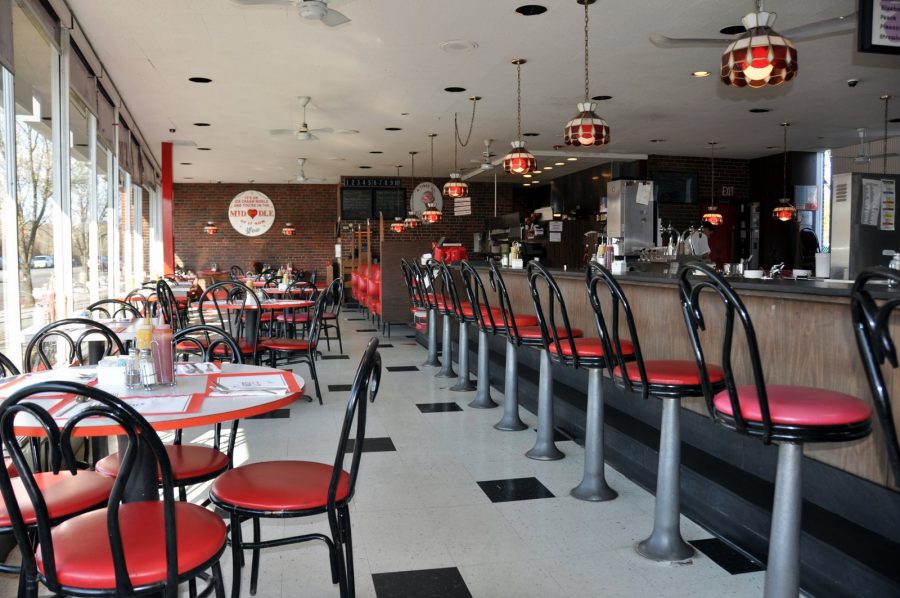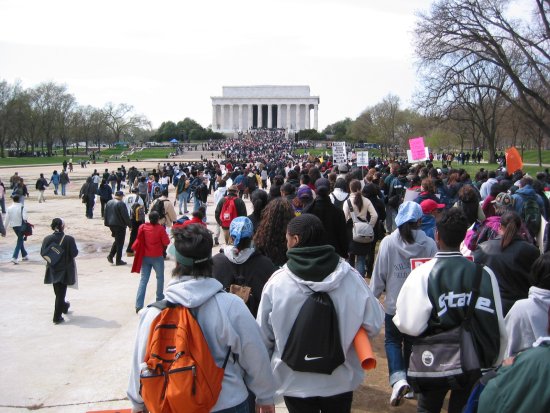Columbus Day was established as a federal holiday, one recognized by the US government, in 1937, and celebrated in Massachusetts as early as 1792 by the Massachusetts Historical Society. For many, the holiday is held in commemoration of Italian explorer Christopher Columbus’ supposed discovery of the Americas.
However, as historians have gathered new information about Columbus’ actions and their impact on indigenous peoples in the Americas, its celebration around the country has stirred controversy. In 1989, South Dakota became the first state in the United States to officially rename Columbus Day to Native Americans’ Day, paving the way for several other colleges, cities, and states to follow in its path.
In Newton, on Monday, Nov. 2, the Newton City Council approved a resolution to replace Columbus Day with Indigenous People’s Day. According to Newton City Councilor Maria Scibelli Greenberg, the council also voted to establish a new, separate holiday for Italian American heritage, and are currently working with residents to choose a day. Yet, despite the City Council’s majority vote to make this change, not everyone in the Newton Community was satisfied with the decision.
Lack of respect for Italian heritage in the United States
The main opposition against changing Columbus Day to Indigenous Peoples’ Day came from Newton’s Italian American community. For many Italian Americans, this change in designation illustrates the larger issue of neglect and disrespect towards Italian communities in the United States, as Columbus’ birthplace was Italy.
The Italian community in America has always celebrated Columbus Day in honor of his Italian background. In 1792, members of New York’s Columbian Order celebrated the first Columbus Day, during which Italian communities held ceremonies and parades in honor of Columbus and Italian Heritage.
According to Nick Pasquarosa, who is of Italian descent and grew up in Nonantum, a village of Newton with a large Italian American community, “my heritage is obviously very important to me, and we want to celebrate the things that are important to us. It’s a pride. I’m proud to be Italian.” said Pasquarosa. “Columbus Day was established federally as a national holiday honoring the fact that he was of Italian descent and discovered America and therefore should be celebrated. As far as my colleagues and I are concerned, this change is an act of bigotry against the Italians.”
According to Kerry Prasad, a Newton resident and coordinator of Families Organizing for Racial Justice (FORJ) at Brown Middle School, the celebration of Italian heritage is important, however Columbus should not be the figure through which Italian heritage is celebrated. Prasad was a vocal advocate for the change from Columbus Day to Indigenous Peoples’ Day at the past Newton City Council meetings.
“Nobody should be erased in the process of changing the holiday name,” noted Prasad. “That’s why I think that it makes sense to have an Italian American Heritage Day, not Columbus Day.”
However, to many Italian Americans, beyond his Italian descent, Columbus “represents what Italians do, and how much Italians have contributed to the American culture,” said Virginia Gardner, a member of the Italian American Alliance (IAA). “Columbus represents our rich culture and shows that we contribute in many ways, and I don’t think many people realize how much Italian Americans have contributed to this country.”
Gardner added that negligence towards Italian culture is further illustrated by people’s general attitudes towards Italians. According to Gardner, Italians have constantly been associated with the mafia, shown through the portrayal of villains in movies with Italian accents such as in the Disney film Shark Tales. This along with connecting Italians with fascism due to the events of World War II has caused Italians to feel silenced, driving them to speak up against accusations against their Italian heritage. The lynching and death of Italian Americans in New Orleans in 1891 further illustrates the disrespect American society shows the Italian community, added Gardner.
“We’re tired of all the nasty things people say about Italians and our heritage, especially what is not true,” said Gardner. “We are now standing up and not being silent, and that is why we will not tolerate the war against Columbus.”
Discussion over Columbus’ history
Opposition against the celebration of Columbus Day stems from Columbus’ inhumane actions against the indigenous peoples of America, according to Baley Champagne in an interview with the National Public Radio (NPR). Champagne is a tribal citizen of the United Houma Nation who contributed to Louisiana’s switch to Indigenous Peoples’ Day.
“We’re not going to allow someone like that to be glorified into a hero, because of the hurt that he caused to Indigenous people of America,” said Champagne, as quoted in the interview.
More specifically, Columbus’ actions included “pillaging, raping and generally setting in motion a genocide of the people who were already here, which is not something anyone should celebrate,” added Shannon Speed, a citizen of the Chickasaw Nation, in a different interview with NPR. Speed is also the director of the University of California, Los Angeles’ (UCLA) American Indian Studies Center.
However, many Italian Americans feel that the accusations made against Columbus are inaccurate, according to Gardner.
“We are not going to say that he [Columbus] didn’t do things that are not accepted in 2020, but we are going to say that some of what people are promoting is not factually correct,” noted Gardner. “Christopher Columbus was very devout, and he kept a diary, which shows that he would have never committed the atrocities people are accusing him of.” Because of these drastic differences between what she has come to know of Columbus and how others perceive him and his actions, Gardner said she believes history surrounding Columbus is being rewritten to spread untruths.
This debate over Columbus’ actions in the Americas stems from different groups of people following different historians. According to Gardner, historians such as Mary Grabar, author of Debunking Howard Zinn, prove that Columbus is being wrongfully accused. On the other hand, Prasad said that by reading numerous documents written during Columbus’ lifetime, it is clear that Columbus committed many atrocities.
Prasad added that aside from historical documents, the spoken evidence from indigenous peoples’ stories further proves why Columbus should not be celebrated. “For people who have been trained in the European ways of thinking, there needs to be written evidence, but some people didn’t have written languages and passed these stories down instead. For a lot of people, they are very skeptical of that. But those stories do exist: the stories and tales passed down by indigenous people.”
Gardner does recognize that some of Columbus’ actions are not acceptable in today’s society, however, when considering the atrocities Columbus is accused of committing, Gardner said people must understand the time period of Columbus’ exploration. “Many people did horrible things in 1492,” said Gardner. “It was a world that now we look back on today and we’re very judgemental because of all the atrocities committed, but ultimately that was how the world was, and everyone did those horrible things.”
In response to this argument, Prasad said the difference in era does not justify the celebration of Columbus. “Not all people killed, raped, and sold slaves. And, it’s never okay to do those things, regardless of time period.”
The date of October 12
For many, it may seem strange why Indigenous Peoples’ Day should be celebrated on October 12 over another day in the year. In fact, November is nationally recognized as Native American Heritage Month and Nov. 27, Native American Heritage Day.
However, according to Prasad, there are multiple issues with the current designation of Native American Heritage Day. First, “the ‘holiday’ is like one of those random holidays you hear of, like ‘Pretzel Day,’ the kind chosen just so that every day of the year has a holiday,” said Prasad. More importantly, “that day was given to the indigenous people by the US government, which is different from the indigenous people choosing their own date.”
The Italian community also does not reject the idea of celebrating Native American heritage through holding an Indigenous Peoples’ Day, according to Gardner. “I would never object to having an Indigenous Peoples’ Day, as it is a day that’s honoring their heritage, and educating people on their culture. I just do not want it celebrated in parallel with Christopher Columbus,” she said.
Yet, October 12 is also an important date for indigenous people, said Prasad. “October 12 is Columbus Day because that’s the day that Christopher Columbus sighted land. And so for indigenous people, they want to reclaim that day, because they feel it’s the day that marks the beginning of the end of their culture, in a lot of ways.”
Indigenous Peoples’ Day and Italian American Heritage Day
After multiple, long, city council meetings, this tension between those who see Columbus as a source of pride and those who see him as a reminder of how indigenous people have and continue to suffer has finally resulted, at least in Newton, with the establishment of Indigenous Peoples’ Day as well as a new Italian American Heritage Day.
For Prasad, this decision was fair. “People think there has to be a winner, and there has to be a loser. It doesn’t have to be that way: both groups of people should have something. And, I think that it’s great to have an Italian American Heritage Day to remember some of the ugly history that Italian Americans have experienced,” she said.
While Columbus Day is still a federal holiday, the adoption of Indigenous Peoples’ Day has clearly become increasingly popular throughout the country. Despite this shift towards Indigenous Peoples’ Day, Gardner said the Italian community will continue to fight for the integrity of Italian heritage. “We may lose the Columbus Day battle, but not without making it very clear that some of the things Italians and Italian heritage are being accused of are lies.”
For those like Prasad and indigenous people around the country, the establishment of Indigenous Peoples’ Day is only the beginning of a larger movement towards understanding the many injustices indigenous people face. “This is a small thing that our city has done in order to begin to make reconciliation with indigenous people,” said Prasad. “This is a step in the right direction. But it does not end or make up for what happened to the indigenous people and what continues to happen to them today.”









































